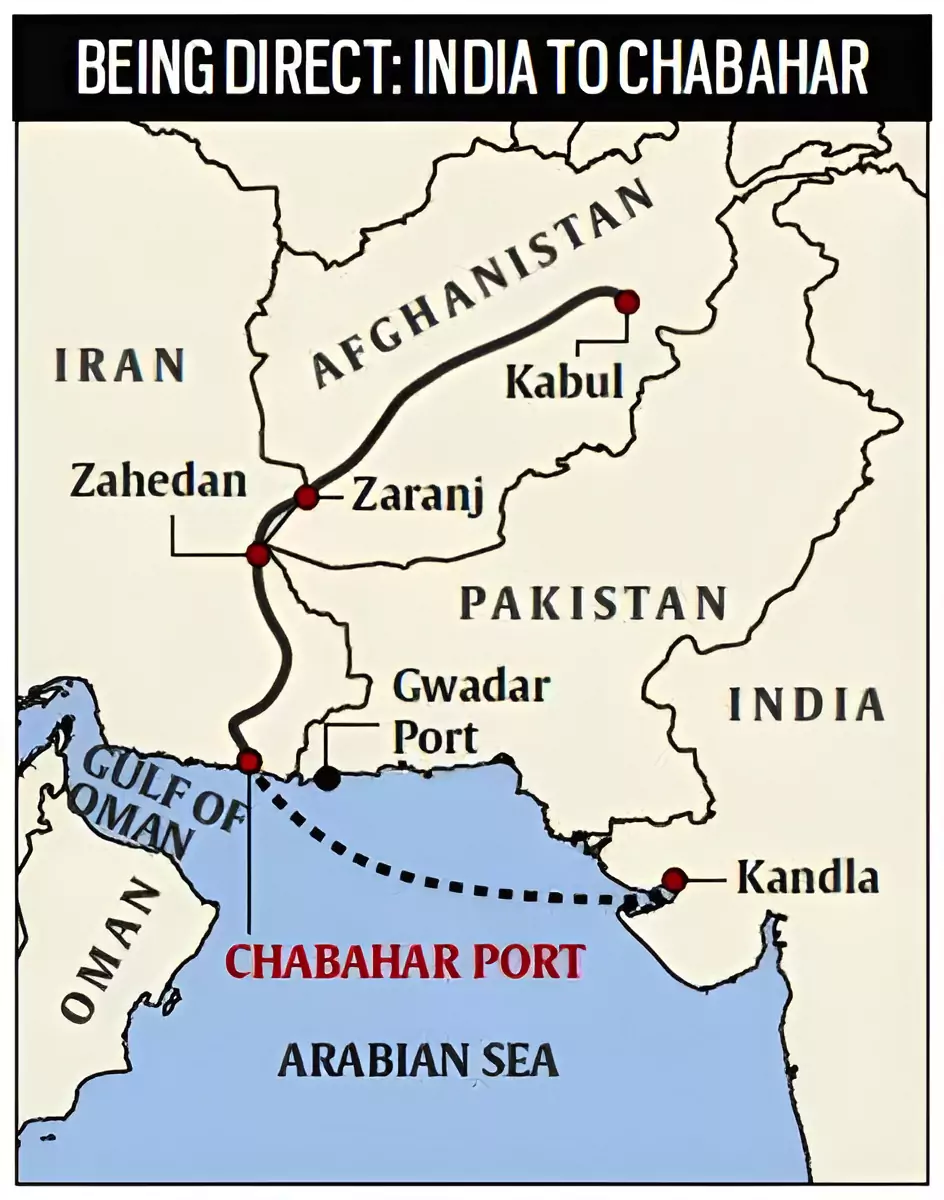Context
A long term agreement was signed between India and Iran allowing India rights to operate and manage the Chabahar Port.
India Signs 10-Year Pact with Iran to Operate its Chabahar Port
India currently operates the Chabahar Port on a short-term agreement, which gets periodically renewed.
- The long-term contract (for 10 years) for the operation of the Shahid Beheshti Port in Chabahar is signed between India Ports Global Ltd. & Ports and Maritime organization of Iran.
- This is the first time India will take over management of a port overseas.
- Significance of the Agreement:
- Streamlining supply chains and Investment: The Long term Agreement will facilitate more investment by the industry players into the port operations as the short-term agreement and Iran’s geopolitical tensions had kept shippers and investors at bay until now.
Enroll now for UPSC Online Course
About Chabahar Port
- It is Tehran’s first deepwater port being developed with the Indian aid aimed at enhancing connectivity and trade relations.
 Location: It is situated in the Sistan-Balochistan province along Iran’s energy-rich southern coast in the Gulf of Oman.
Location: It is situated in the Sistan-Balochistan province along Iran’s energy-rich southern coast in the Gulf of Oman. - Indian Involvement: The project to develop Chabahar began in 2002 with a roadmap for strategic cooperation being signed between both countries
- A trilateral agreement 2016: Signed between India, Iran and Afghanistan for the development of an international trade corridor, which would include Chabahar as a central transit point.
- The Shahid Beheshti port’s first phase was inaugurated in December 2017, with India sending its first consignment of wheat to Afghanistan through Chabahar that same year.
- Operating Agency: State-owned India Ports Global Limited (IPGL) was incorporated in 2015 for the development of ports overseas.
- The Chabahar project: It comprises two distinct ports ie. the Shahid Beheshti and Shahid Kalantari. India’s investment is restricted to the Shahid Beheshti port.
- The Shahid Beheshti port is being developed in four phases with a total capacity of 82 million tonnes per year.
Strategic Significance of Chabahar
- New trade Routes: Chabahar is very crucial for New Delhi in its hunt for new trade routes to Central Asia and Europe to bypass land transit dependence on Pakistan.
- Part of INSTC: Chabahar port is recognized as a crucial node for the International North-South Transport Corridor (INSTC) project
- The INSTC is a 7200km multi-mode transport route linking the Indian Ocean and the Persian Gulf to the Caspian Sea via Iran, and onward to northern Europe via Saint Petersburg in Russia.
- Easy accessibility: Chabahar Port is easily accessible from India’s western coasts and is vital for both India and Iran to reduce their dependence on the Suez Canal for transporting cargo to Europe, especially given the geopolitical tensions in the Red Sea area.
- Shipments through the INSTC route will take 15 days less compared to the Suez Canal route, unlocking India’s trade potential with European countries.
- Significant Indian Investment: According to the Research and Information System for Developing Countries (RIS), as of January 2018, Indian investment in the Chabahar project was expected to be about $85 million, with overall Indian exposure to the project estimated at $500 million.
- Strategic Location: Chabahar lies to the west of Iran’s border with Pakistan and close to the competing port of Gwadar, making it an attractive investment for India.
- Counterbalance China: China is developing Gwadar port in Pakistan as part of its Belt and Road Initiative. India’s securing Chabahar has crucial economic, security, and strategic significance.
- For Iran: Chabahar can potentially help Iran in dealing with the effects of Western sanctions and aid land-locked Afghanistan in curbing its dependency on Pakistan for access to the Indian Ocean.
- Access to Indian Ocean for Central Asian Nations: Resource-rich but landlocked Central Asian states such as Kazakhstan and Uzbekistan see Chabahar as a gateway to the Indian Ocean Region and the Indian market.
- The port will also be handy for Indian traders and investors interested in Central Asia.
Enroll now for UPSC Online Classes
![]() 14 May 2024
14 May 2024
 Location: It is situated in the Sistan-Balochistan province along Iran’s energy-rich southern coast in the Gulf of Oman.
Location: It is situated in the Sistan-Balochistan province along Iran’s energy-rich southern coast in the Gulf of Oman.